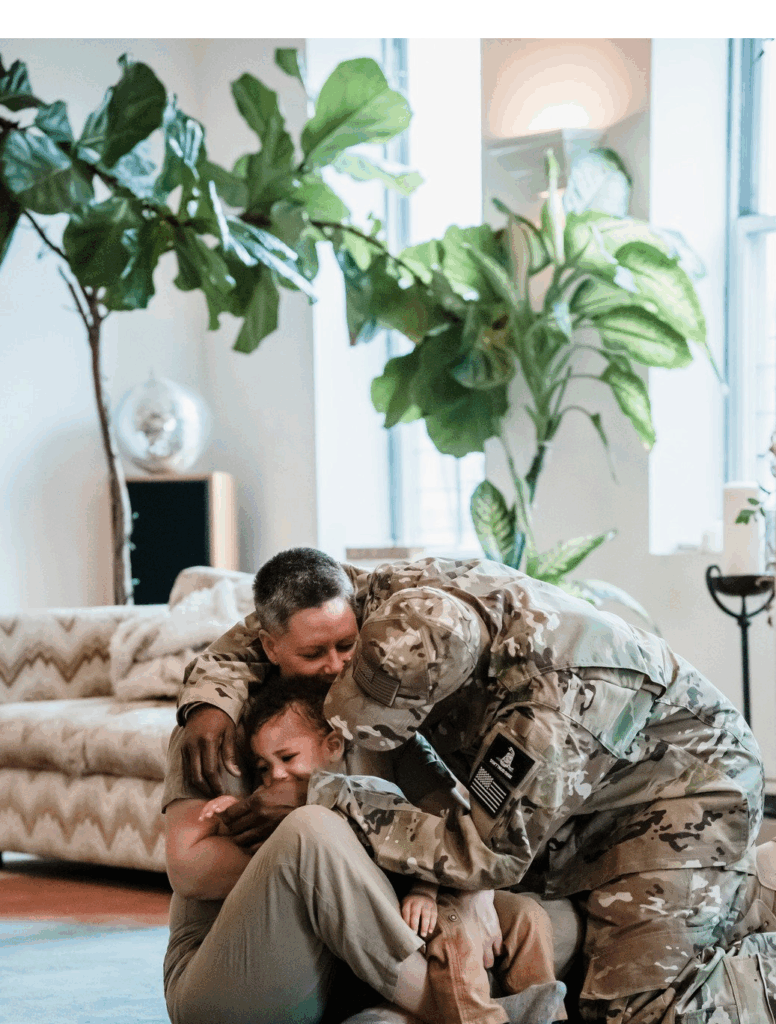PTSD in Veterans: 2025 Expert-Led Treatment Guide


New Hope for Veterans Living with PTSD
Post-Traumatic Stress Disorder (PTSD) affects countless Veterans, impacting their mental health, relationships, and daily lives long after service. In 2025, advancements in treatment — combined with compassionate, integrative care — are giving Veterans new tools for recovery.At Meah Modern Psychiatry, our licensed psychiatrists understand the unique challenges of military service and offer comprehensive treatment options that address the whole person — not just the diagnosis.
Understanding PTSD in Veterans
PTSD is a mental health condition that can develop after experiencing or witnessing traumatic events, such as combat, military sexual trauma, or life-threatening missions. For Veterans, these experiences can leave deep emotional imprints that resurface long after returning home.
Common causes include:
- Exposure to combat or hostile environments
- Witnessing injury or loss of life
- Experiencing or witnessing military sexual trauma
- Surviving life-threatening accidents or attacks
Recognizing the Symptoms
Not all symptoms appear right away — some may emerge months or even years after service.
Key symptoms of PTSD in Veterans include:
- Flashbacks or intrusive memories
- Nightmares and disrupted sleep
- Hypervigilance or feeling “on edge”
- Emotional numbing or detachment
- Avoidance of reminders of trauma
- Difficulty maintaining relationships
- Changes in mood or increased irritability
Impact on Daily Life
Without proper care, PTSD can affect every part of a Veteran’s life — from relationships to job performance and physical health. Many Veterans also experience co-occurring issues like depression, anxiety, or substance use.
Left unaddressed, PTSD can lead to social isolation, strained family dynamics, and reduced quality of life. But with evidence-based treatment, recovery is possible.
Traditional Treatments Veterans Often Receive
The most recognized treatments for PTSD include:
Therapy
- Cognitive Behavioral Therapy (CBT)
- Prolonged Exposure Therapy (PE)
- Eye Movement Desensitization and Reprocessing (EMDR)
Medications
- SSRIs, SNRIs and other medications for mood stabilization and anxiety reduction
Group Support
- Peer-led support groups
- VA programs designed for Veteran mental health
What’s New in 2025: Breakthrough PTSD Treatments
In 2025, Veterans have access to innovative therapies that can complement traditional methods:
- Transcranial Magnetic Stimulation (TMS)
- A non-invasive treatment that targets brain regions involved in mood and trauma processing.
- A non-invasive treatment that targets brain regions involved in mood and trauma processing.
- Virtual Reality Exposure Therapy
- Immersive simulations help Veterans safely reprocess traumatic memories in a controlled environment.
- Immersive simulations help Veterans safely reprocess traumatic memories in a controlled environment.
- Psychedelic-Assisted Psychotherapy
- Guided sessions using medications like Ketamine, or other psychedelics like MDMA or psilocybin (where legally available) to facilitate emotional breakthroughs.
The Meah Modern Psychiatry Difference
Unlike providers who only offer one type of treatment, we bring everything together in one place for your convenience and continuity of care:
- Licensed Psychiatrists with specialized expertise in Veteran mental health
- Talk therapy, medication management, cutting-edge therapies, and health & fitness regimens under one roof
- Insurance accepted and easy billing
- Quick, easy scheduling for both in-person and telepsychiatry sessions
This integrated approach means every part of your treatment plan works together for faster, more sustainable results.

Lifestyle Support That Enhances Recovery
We believe healing extends beyond the therapy room. Our holistic care includes:
Nutrition for Brain Health
- Diet plans to support mood, focus, and emotional stability
Mindfulness & Stress Reduction
- Breathing exercises, guided meditation, and movement practices like yoga
Fitness Integration
- Exercise recommendations tailored to your physical capacity and goals
Supporting Families and Relationships
PTSD affects more than the individual — it impacts spouses, children, and friends. We provide education and therapy options for families so they can better understand and support the Veteran’s journey.

Self-Advocacy & Long-Term Resilience Skills
Veterans often thrive when given tools to actively manage their progress:
- Symptom tracking and reflection journals
- Techniques for grounding and self-regulation
- Setting realistic, measurable recovery goals
Finding the Right Care
When choosing PTSD treatment, look for providers who offer evidence-based therapies, integrative care, and personalized support. You deserve more than a one-size-fits-all approach.
FAQ Spotlight: Your Questions, Answered
- What is the most effective PTSD treatment for Veterans in 2025?
Effectiveness depends on the individual, but combining therapy (like CBT or EMDR) with modern treatments like TMS often leads to the best outcomes.
2. Can PTSD improve without medication?
Yes. Many Veterans benefit from therapy, lifestyle changes, interventions like TMS & Ketamine, and holistic care without medication, though medication can be helpful for some.
3. How does TMS therapy help with PTSD?
TMS stimulates specific brain areas linked to mood regulation, helping to reduce PTSD symptoms in some patients.
4. Are there nutrition plans that help PTSD recovery?
Yes. Diets rich in omega-3s, antioxidants, and whole foods support brain health and emotional balance.
5. Does insurance cover PTSD treatment at Meah Modern Psychiatry?
We accept many insurance plans and offer transparent billing so you know your costs upfront.
6. How long does PTSD treatment usually take?
Treatment length varies — some see improvement in weeks, others may require several months of ongoing care.
7. Can family therapy help with Veteran PTSD?
Absolutely. Family therapy can improve communication, understanding, and support systems.
8. Is online PTSD treatment effective for Veterans?
Yes. Telepsychiatry offers convenience without sacrificing quality, especially for Veterans in remote areas.
Take the Next Step
You don’t have to face PTSD alone. Our team of licensed psychiatrists is here to provide expert, compassionate care tailored to your unique needs.

